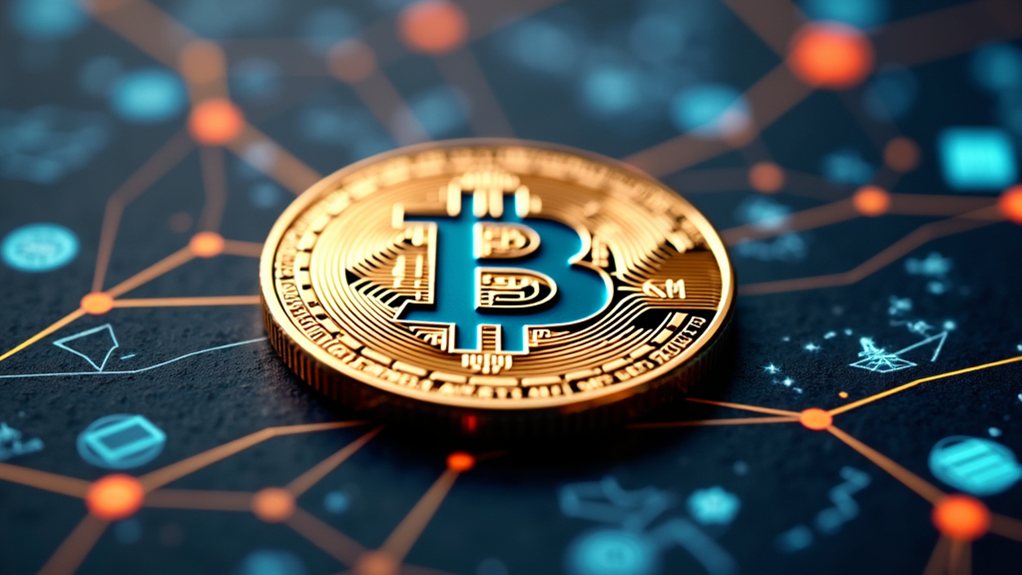A decentralized exchange (DEX) is a platform where users trade cryptocurrencies directly with each other without middlemen. DEXs use blockchain technology and smart contracts to enable peer-to-peer transactions. They're part of the DeFi movement that aims to eliminate central authorities from financial services. Users maintain control of their private keys and funds. DEXs typically offer greater privacy, lower fees, and access to numerous tokens not available on centralized exchanges. The growing DEX ecosystem continues to transform how people exchange digital assets.

A decentralized exchange, or DEX, serves as a modern alternative to traditional cryptocurrency trading platforms. Unlike centralized exchanges, DEXs allow people to trade cryptocurrencies directly with each other without a middleman. They use blockchain technology and smart contracts to make transactions possible. DEXs are part of the growing decentralized finance (DeFi) movement that aims to create financial services without central authorities. DEXs operate with complete transparency compared to traditional financial transactions through their blockchain-based structure.
DEXs have several important features that set them apart. They're non-custodial, which means users keep control of their private keys and funds. Many DEXs use automated market makers (AMMs) to determine prices rather than traditional order books. Users provide funds to liquidity pools, which enable trading. Most DEXs have open-source code that anyone can review. They also don't require identity verification, allowing anyone to trade. Users typically earn liquidity provider rewards when contributing assets to DEX liquidity pools.
There are different types of DEXs in the market. AMM DEXs like Uniswap use mathematical formulas to price assets. Order book DEXs track all buy and sell orders. DEX aggregators search multiple platforms to find the best prices. Some DEXs process all transactions on the blockchain (on-chain), while others handle some functions off-chain but settle trades on the blockchain. These platforms are built with peer-to-peer transactions at their core, eliminating the need for traditional financial institutions.
Users choose DEXs for several benefits. They offer more privacy than centralized exchanges. There's less risk of losing funds if the exchange gets hacked. Trading fees are often lower. DEXs list many new and niche tokens not found on larger exchanges. They also can't be shut down easily by governments or companies.
Despite these advantages, DEXs face challenges. They typically have less trading volume than centralized exchanges, making it harder to trade large amounts. Smart contracts might have security flaws that could be exploited. New users often find DEXs harder to use. Transactions can be slow as they wait for blockchain confirmation. Most DEXs don't let users buy crypto with regular money.
Popular DEX platforms include Uniswap, which pioneered the AMM model on Ethereum. SushiSwap began as a Uniswap clone but added new features. PancakeSwap operates on the Binance Smart Chain with lower fees. dYdX focuses on derivative trading. 1inch searches multiple DEXs to find the best prices for traders.
The future of DEXs looks promising with ongoing developments. New scaling solutions aim to make transactions faster and cheaper. Cross-chain DEXs will allow trading between different blockchains. Some projects are working to connect DEXs with traditional finance. User interfaces are becoming more user-friendly.
However, DEXs also face potential regulatory challenges as governments develop rules for cryptocurrency trading.
Frequently Asked Questions
Are DEXS Safer Than Centralized Exchanges?
DEXs and centralized exchanges each have different safety features.
DEXs let users keep control of their funds but face smart contract risks.
Centralized exchanges offer insurance and security teams, but they're targets for hackers and may freeze accounts.
DEXs provide more privacy with no KYC requirements, while centralized exchanges must follow regulations.
Neither option is absolutely safer – they present different types of security trade-offs.
How Do DEXS Generate Revenue?
DEXs generate revenue primarily through trading fees, typically ranging from 0.1% to 0.3% per transaction.
These fees are often split between liquidity providers and the protocol itself.
Additional revenue streams include native token issuance, liquidity provision incentives, and integration fees for new project listings.
Some DEXs also earn from partnerships with other DeFi protocols, yield farming opportunities, and cross-chain bridge services.
Can DEXS Be Regulated by Governments?
Governments face significant challenges regulating DEXs due to their decentralized nature.
While traditional exchanges operate under clear jurisdictions, DEXs exist across borders with no central authority.
Some countries have banned DEXs, while others apply existing financial regulations.
The SEC classifies certain DEX tokens as securities.
Self-regulation efforts include voluntary KYC checks and community governance.
Future regulation will likely target specific DEX functions while balancing innovation and consumer protection.
What Are the Gas Fees Associated With DEXS?
Gas fees on decentralized exchanges (DEXs) vary widely depending on the blockchain they operate on.
Ethereum-based DEXs typically have higher fees during busy periods. These fees pay for the computing power needed to process transactions.
Newer blockchains like Solana offer lower fees.
Complex trades involving multiple tokens cost more.
Some DEXs now use layer-2 solutions to reduce these costs considerably.
Do All Blockchains Support Decentralized Exchanges?
No, not all blockchains support decentralized exchanges. DEXs require smart contract functionality, which many blockchains don't have.
Ethereum was the first major blockchain to enable DEXs. Bitcoin, for example, can't natively support complex DEXs due to limited smart contract capabilities.
Other blockchains like Solana, Binance Smart Chain, and Polygon do support DEXs. Cross-chain solutions are being developed to connect different blockchain networks.














